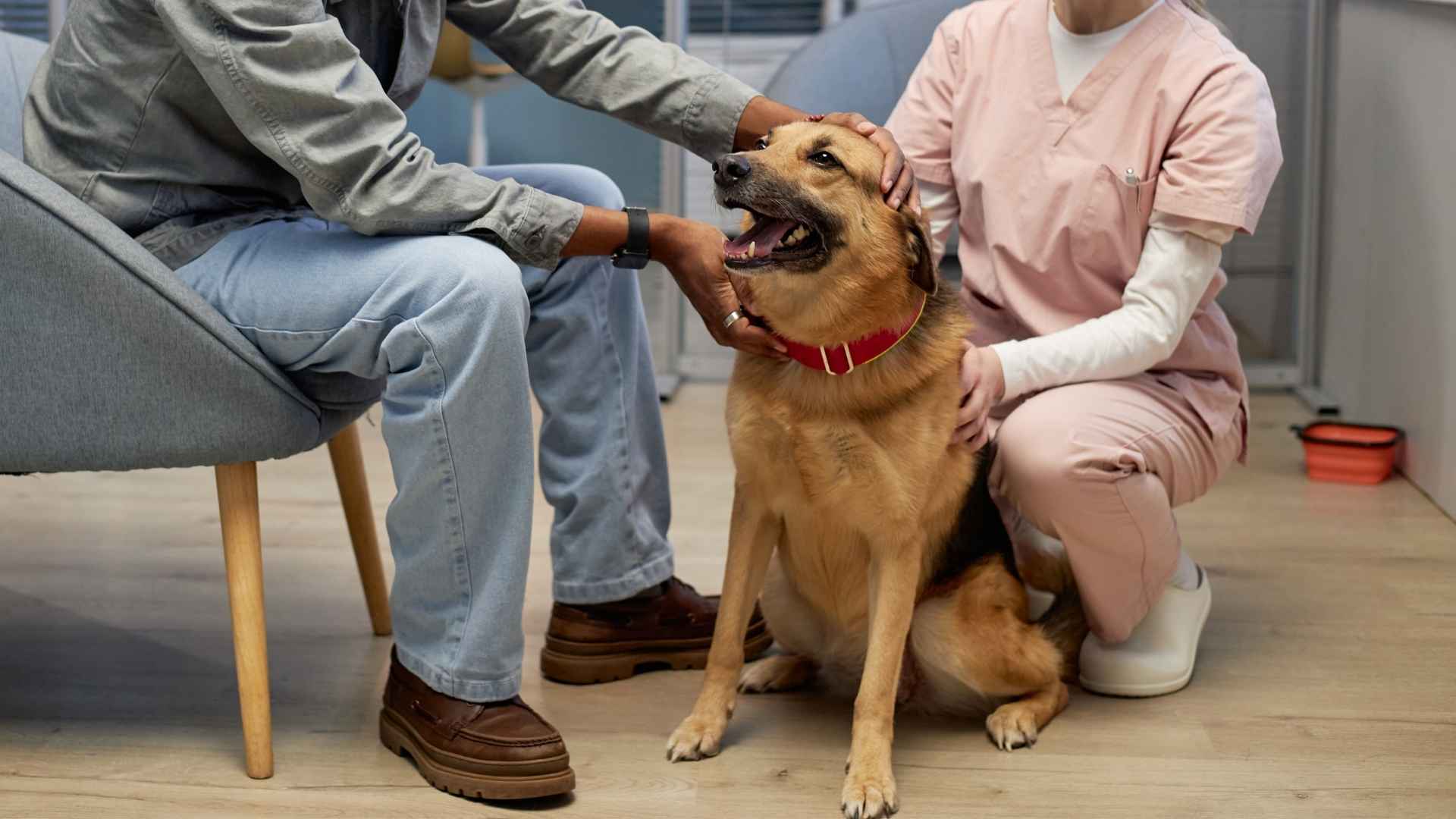Dogs bring endless joy, but some are genetically prone that inherit serious health risks. These breeds may look strong and healthy, but beneath their adorable faces and loyal hearts, genetic factors can lead to lifelong challenges.
From joint problems to heart disease, certain breeds are more susceptible to inherited conditions that affect their quality of life.
With the right knowledge, preventive care, and responsible breeding, these dogs can still live happy, fulfilling lives despite their genetic disadvantages. Let’s explore which breeds need extra attention and why.
Genetically Prone Dog Breeds
1. French Bulldog

The French Bulldog is a beloved companion, but like many brachycephalic breeds, it faces a higher risk of serious health complications. Their flat faces contribute to breathing issues, with brachycephalic airway syndrome being a common problem. This condition can cause noisy breathing, overheating, and difficulty exercising.
Spinal disorders, particularly intervertebral disc disease, frequently occur in this breed due to their short, compact build. This painful condition can lead to paralysis if not managed properly. Many dogs also experience hip dysplasia, making movement challenging as they age.
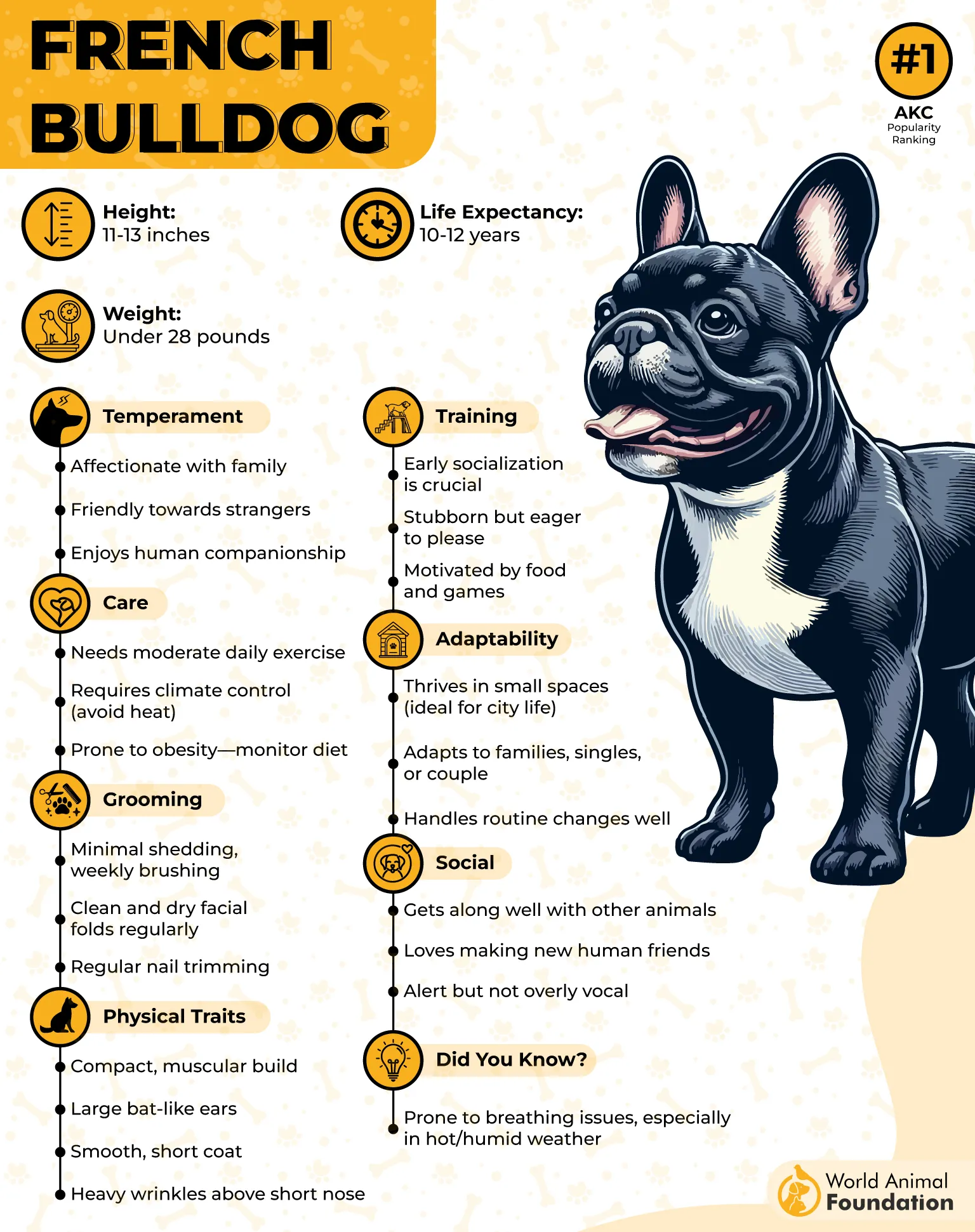
Skin allergies are another common concern in bulldogs, often linked to genetic factors. These allergies can lead to chronic infections, requiring lifelong management. Many dogs also have eye problems, such as cherry eye and cataracts.
Owners should be aware of their French bulldogs’ health risks and take preventive measures. Proper weight management, cooling strategies in warm weather, and regular vet visits are essential for preventing health issues. A high-quality diet and moderate exercise help maintain their overall well-being.
Despite their health challenges, the French Bulldog remains popular among dog breeds. Their affectionate nature and playful personality make them fantastic companions. These pets can still enjoy a happy and fulfilling life with responsible care.
2. Boxer

The Boxer is an energetic and intelligent breed, but is prone to several genetic diseases. Among the most concerning conditions is canine cancer, which has a high incidence in this breed. Lymphoma and mast cell tumors are particularly common, requiring early detection for better outcomes.
Heart conditions such as arrhythmogenic right ventricular cardiomyopathy frequently affect Boxers. This genetic disorder can lead to sudden cardiac arrest, making regular heart screenings crucial. Other common breeds do not face this condition at the same rate, making it a significant concern for Boxer owners.
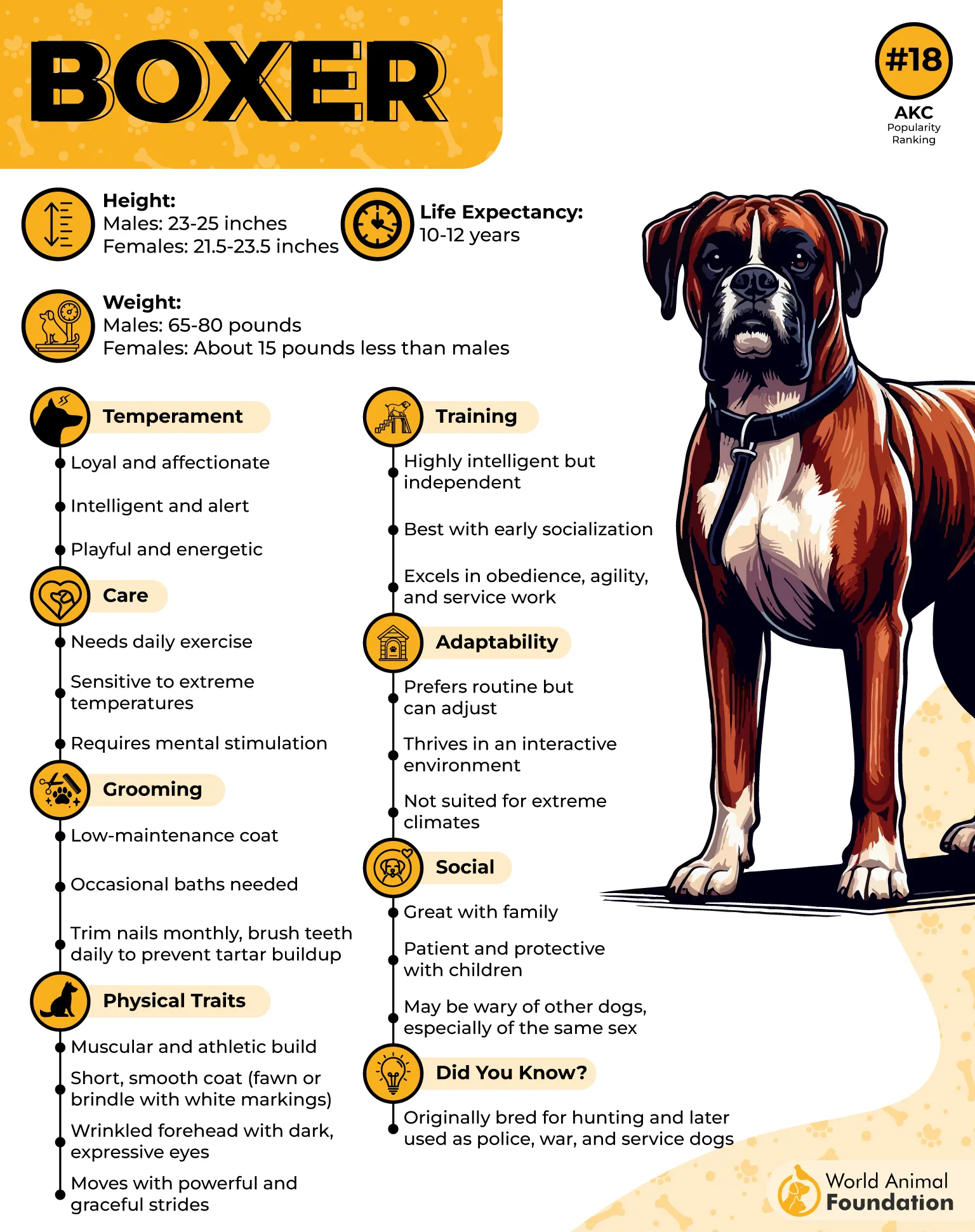
Boxers also have a higher rate of hip dysplasia and degenerative myelopathy, both of which impact mobility. These disorders can limit their ability to run and play, which is tough for an active breed.
Female dogs in this breed have a higher risk of developing mammary cancer, a genetic disorder frequently seen in this purebred dog. Regular vet check-ups can help detect early symptoms and improve life expectancy.
Owners should ensure their Boxer receives plenty of exercise without overexertion. A well-balanced diet and routine vet visits help reduce their risk of severe health complications. Recognizing early symptoms can improve long-term management of their health.
Boxers remain one of the most loyal and playful dog breeds despite these challenges. Their energetic spirit and deep bonds with their family make them excellent companions. With the right care, they can live a long and happy life.
3. Dachshund

According to PetMD, the Dachshund, known for its long body and short legs, is a favorite among small breeds. However, this unique structure increases their risk of intervertebral disc disease.
Their skeletal structure makes them more susceptible to joint problems like patellar luxation. Unlike other breeds, their long spines struggle to support excessive weight, so that obesity can worsen their health issues. Owners should avoid letting them jump from high surfaces to prevent spinal injuries.
Eye disorders are another concern, with progressive retinal atrophy leading to blindness in many senior dachshunds. They also have a higher rate of epilepsy, which requires lifelong medical management. These genetically inherited conditions make regular vet checkups essential.
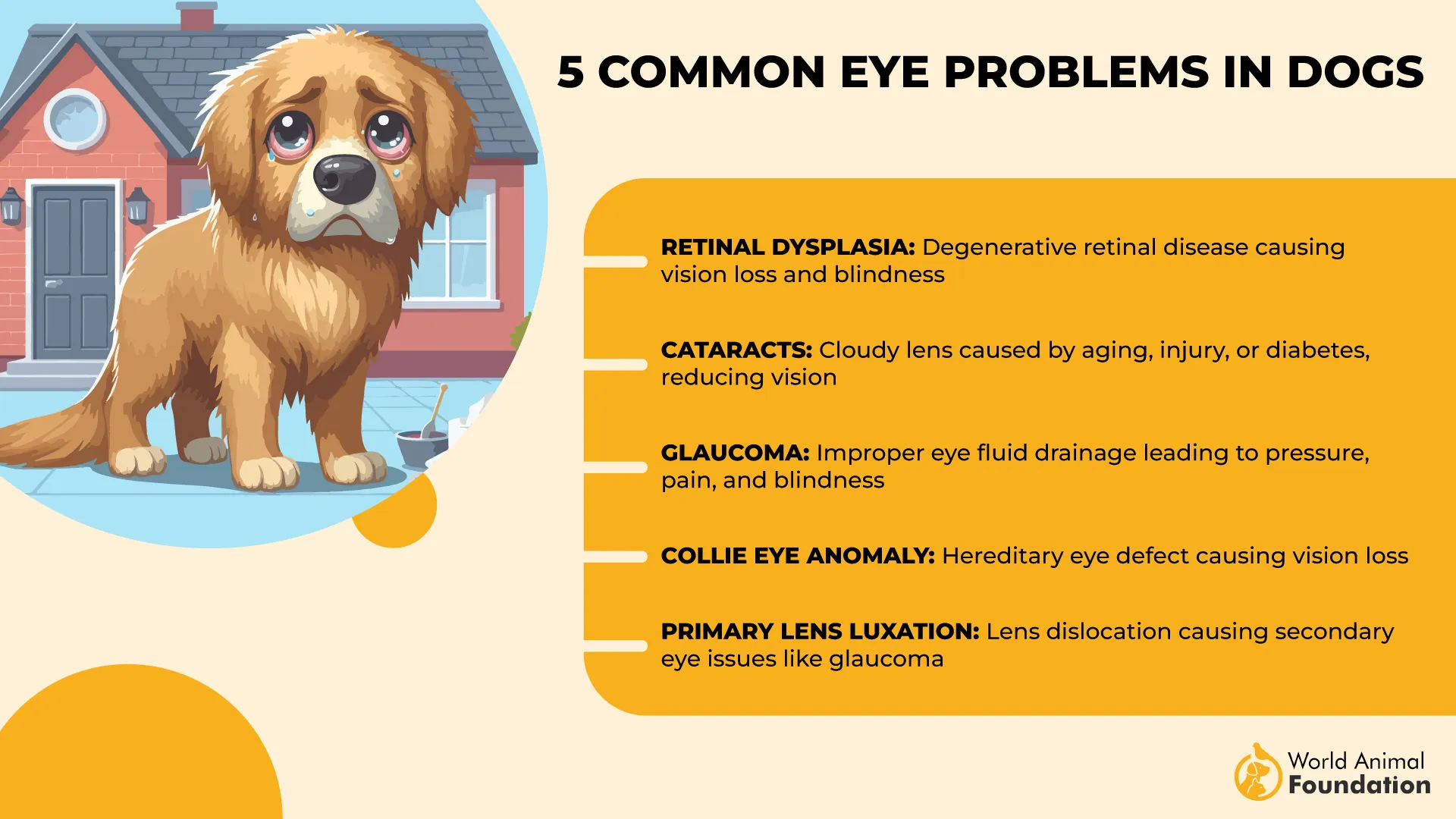
A well-monitored diet and controlled exercise help prevent unnecessary strain on their backs. Maintaining a healthy weight significantly reduces their risk of spinal problems. Owners should also be aware of any signs of pain or weakness in their movement.
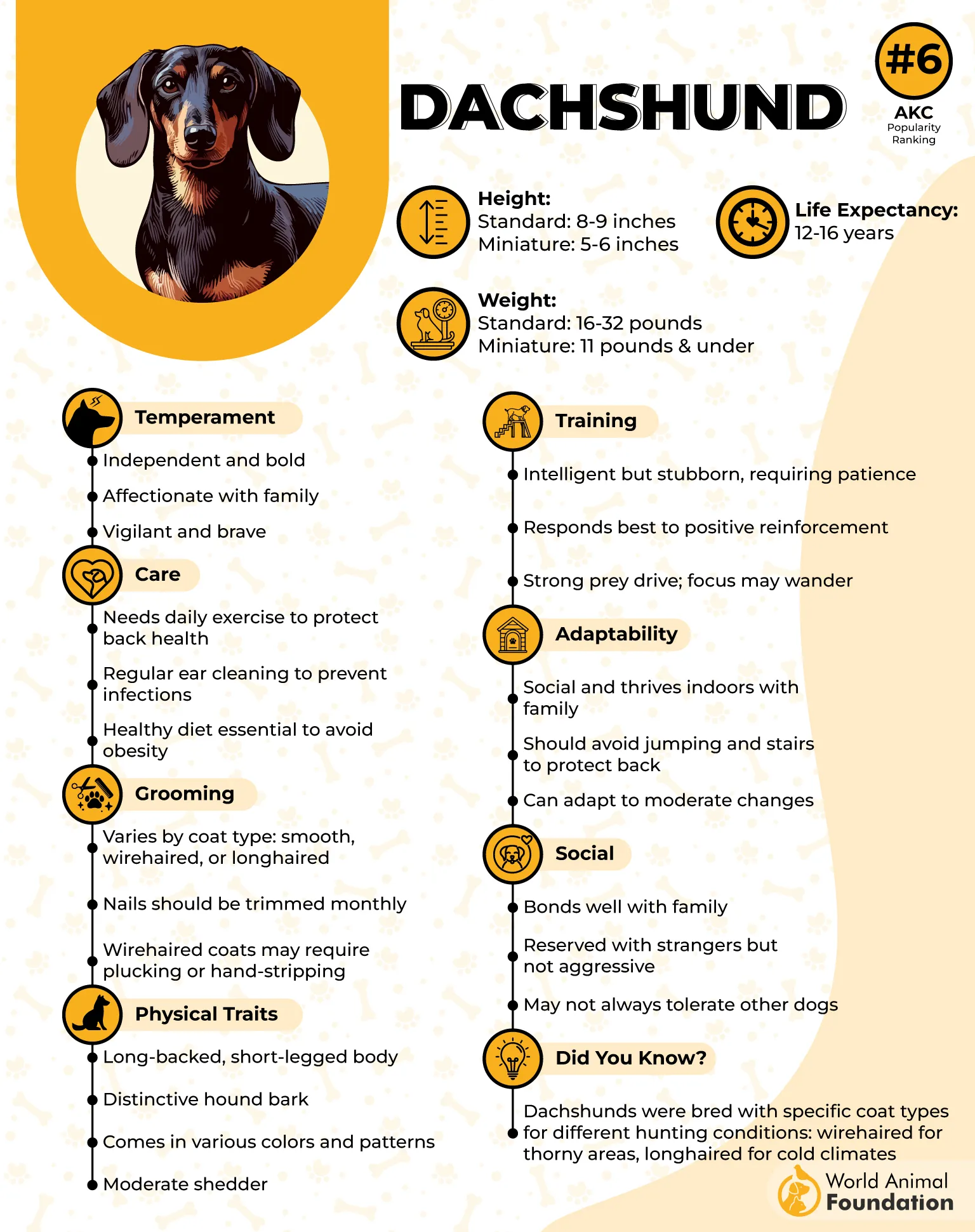
Dachshunds remain one of the most affectionate and lively dog breeds. Their playful spirit and deep loyalty make them excellent pets. With proper care, they can enjoy a long and healthy life.
4. Cavalier King Charles Spaniel

The Cavalier King Charles Spaniel is a charming and affectionate breed with a higher risk of serious health issues. Among purebred dogs, this breed is particularly vulnerable to heart disease, with mitral valve disease being the leading cause of death. This condition can progress to heart failure, significantly shortening their life expectancy.
Another major concern is intervertebral disc disease, a spinal condition that affects mobility and causes severe pain. Many dogs suffer from this issue as they age, making movement difficult. Eye disorders like progressive retinal atrophy can also lead to blindness, further impacting their quality of life.

Female Cavalier King Charles Spaniels can inherit genetic diseases, including a higher incidence of mammary cancer, making early detection and preventive care essential.
The genetic factors behind these conditions make routine health screenings essential. Responsible breeders aim to reduce these risks by selectively breeding healthier puppies. However, even well-bred Cavaliers remain susceptible to inherited illnesses, requiring lifelong care and regular vet visits.
Proper exercise and a balanced diet can help delay the onset of genetic diseases. Weight management is especially important, as obesity can worsen joint and heart conditions. Owners should also know the early symptoms like fatigue, coughing, or difficulty moving.
Despite their health issues, Cavaliers remain among the most beloved small breeds. Their affectionate nature and deep bond with their family make them exceptional companions. With proactive care, these dogs can still lead happy and fulfilling lives.
5. Beagle

According to Britannica, Beagles are one of the most common breeds, known for their keen sense of smell and playful personality. However, they are prone to several genetic diseases, including epilepsy, which frequently occurs in this breed. This neurological condition leads to seizures that require lifelong management.
Another concern is their higher rate of hypothyroidism, which slows metabolism and causes weight gain. Obesity can further lead to heart disease, increasing the risk of serious complications. Ear infections are another problem due to their long, floppy ears trapping moisture.
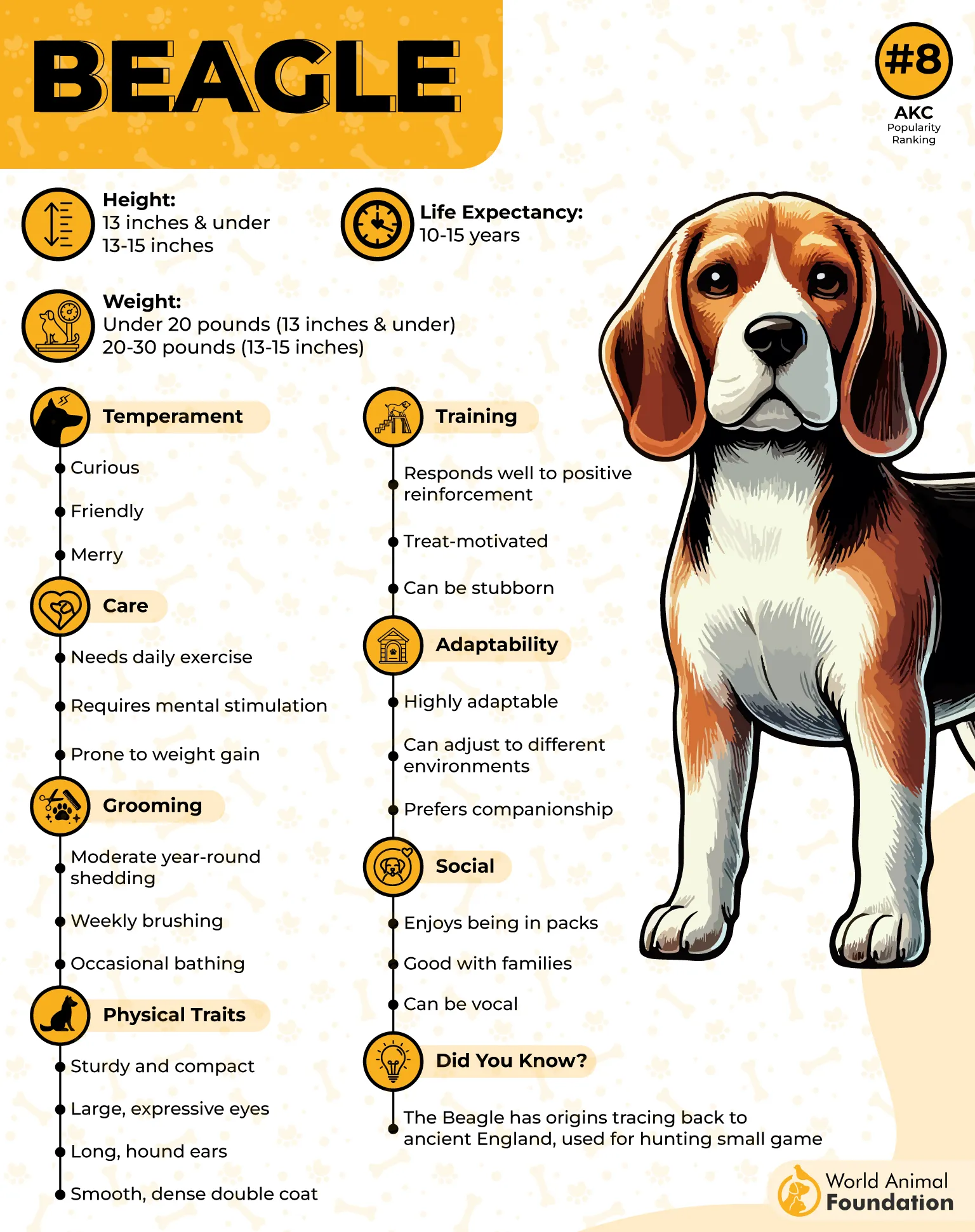
While many dogs experience joint issues, Beagles can develop patellar luxation, where the kneecap slips out of place. This can make movement painful, requiring surgery in severe cases. Regular exercise is crucial to keep their muscles strong and joints stable.
Due to their love for food, Beagles are at an increased risk of obesity-related conditions. A well-monitored diet and portion control help prevent excessive weight gain. Owners should also watch for early signs of disease, as catching issues early improves treatment success.
Besides their genetic factors, Beagles are energetic and loving pets. They can live a long, healthy life with proper care, a good diet, and regular vet visits. Their friendly nature and strong bond with humans make them a wonderful addition to any family.
6. German Shepherd

Among purebred dogs, the German Shepherd is one of the most versatile and intelligent breeds, as described by the AKC. Unfortunately, they are genetically prone to hip dysplasia, a debilitating joint condition that can cause severe pain and limited mobility. This issue is common in giant breed dogs, making early detection crucial.
As they age, they also face a higher risk of degenerative myelopathy, a neurological disorder that causes progressive paralysis. Many other dogs do not suffer from this at such a high incidence, making it a major concern for the breed. Early symptoms include weakness in the hind legs and difficulty standing.

This breed is also at risk for digestive disorders, including exocrine pancreatic insufficiency, which affects nutrient absorption. Some German Shepherds develop autoimmune conditions, leading to chronic skin problems or inflammatory diseases. Their working nature means they require more health monitoring than other breeds.
Proper exercise and a high-protein diet help maintain muscle strength and support joint health. Owners should be aware of any changes in movement or behavior, as early treatment can slow disease progression. Regular vet visits and genetic testing can help manage these inherited conditions.
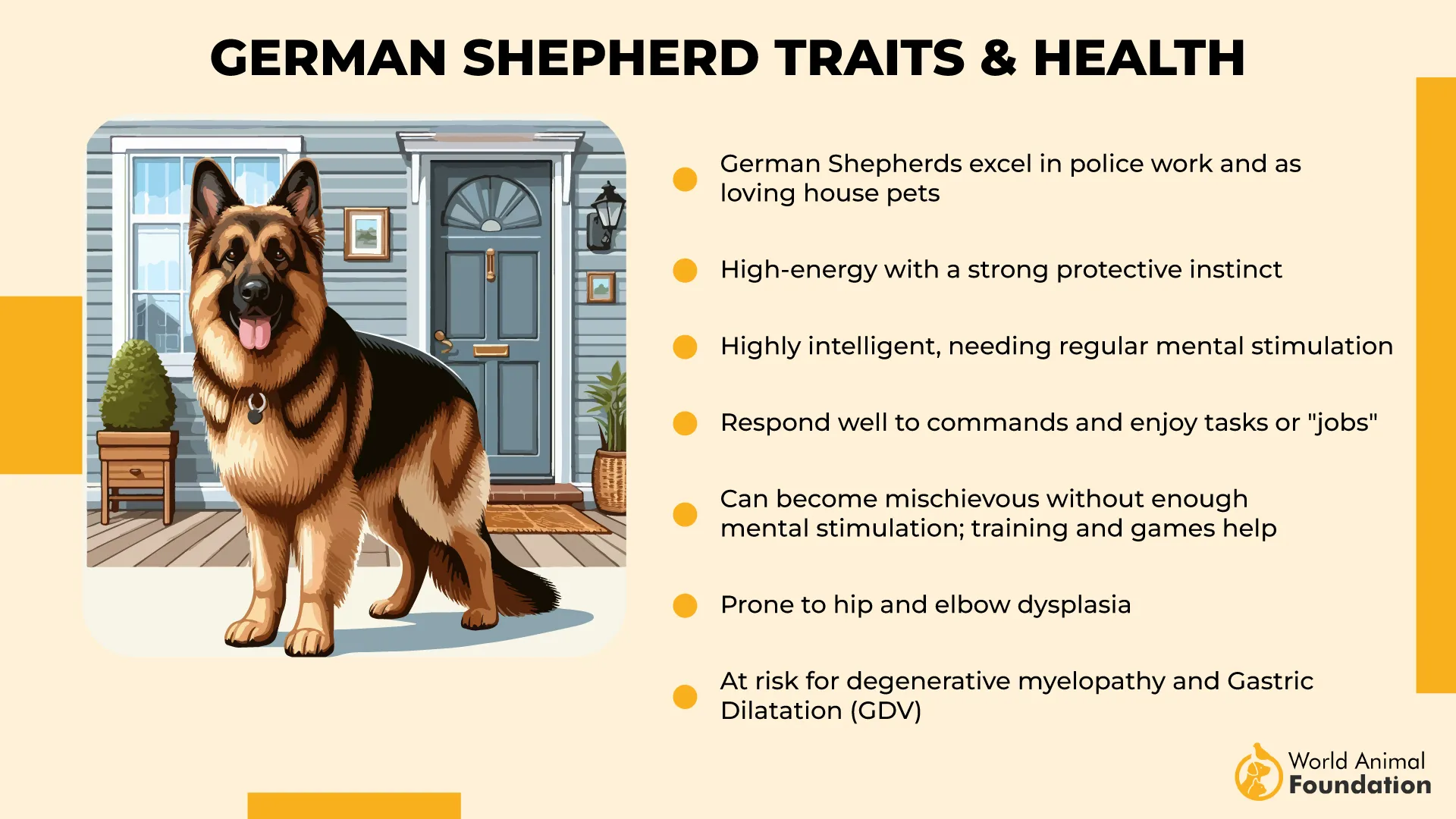
German Shepherds remain one of the most loyal and capable dog breeds. Their intelligence, trainability, and protective instincts make them exceptional working dogs and devoted family companions. With proper care, they can still lead fulfilling lives.
7. Cockapoo

The Cockapoo, a mix between a Poodle and a Cocker Spaniel, is a beloved mixed breed known for its friendly personality. However, despite the benefits of hybrid vigor, this mixed-breed dog is still at risk for genetic diseases inherited from its parent breeds. Common concerns include hip dysplasia, eye disorders, and epilepsy.
One of their biggest health risks is progressive retinal atrophy, a genetic condition that leads to blindness over time. Many dogs also suffer from luxating patellas, where the kneecap dislocates, causing pain and difficulty walking. These conditions require early intervention for better management.
Because certain breeds in their lineage are prone to heart problems, Cockapoos have an increased risk of mitral valve disease. This heart condition can eventually cause heart failure, especially in senior dogs. Regular cardiac checkups can help detect problems early.
Proper diet, exercise, and dental care are essential in preventing additional health issues. These pets thrive on consistent routines and require regular grooming to prevent ear infections. Owners should also be mindful of their weight, as obesity can worsen joint conditions.
Cockapoos remain among the most affectionate and playful dog breeds despite their genetic factors. With the right care, they can enjoy a long and active life. Their loving nature makes them a favorite choice for family homes looking for a loyal companion.
Conclusion
Caring for dogs with genetic diseases requires awareness, dedication, and proactive health management. While purebred dogs like the Cavalier King Charles Spaniel and Bernese Mountain Dogs may inherit genetic diseases, responsible breeding and early detection can help mitigate risks. Mixed-breed dogs may have fewer hereditary issues, but are not entirely immune to health issues linked to other genes.
Certain dog breeds, like the German Shepherds and Great Danes, face a higher risk of conditions like hip dysplasia and heart disease, while brachycephalic breeds are susceptible to breathing disorders. Regular vet check-ups, proper exercise, and a balanced diet are crucial in preventing complications.
While genetics plays a role, responsible ownership makes a difference. Understanding the genetic factors affecting certain breeds ensures better care, improving their life expectancy and well-being.


